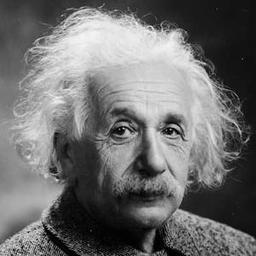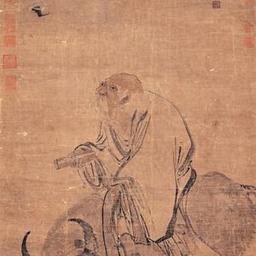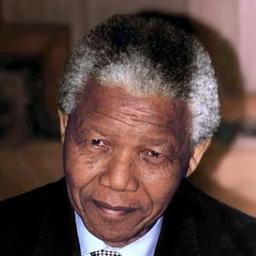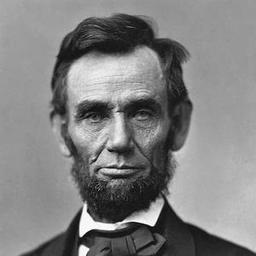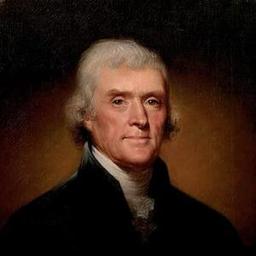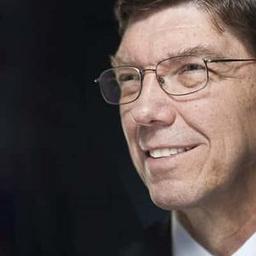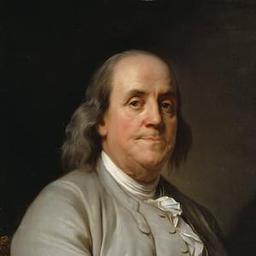170 Quotes
"“That was my first race, and it brought advertising of the only kind that people cared to read,” Ford wrote. He became known nationwide."
— Morgan Housel
A Few Stories About Big Decisions"“I would have been the second or third person in movie history to sign a million-dollar contract, but I was the very first to turn one down,”"
— Morgan Housel
A Few Stories About Big Decisions"“The leader in a democracy has to keep the people entertained. That may sound like the wrong word, but it conveys the thought.”"
— Morgan Housel
A Few Stories About Big Decisions"Most decisions aren’t made on a spreadsheet, where you just add up the numbers and a rational answer pops out. There’s a human element that’s hard to quantify, hard to explain, and can seem detached from the original goal, yet carries the most influence."
— Morgan Housel
A Few Stories About Big Decisions"The only important thing is what people think you are"
— Morgan Housel
A Few Stories About Big Decisions"A subtle problem with money is that assets are easy to measure but liabilities can be hidden. Measuring lottery winnings is simple: $3.9 million, down to the penny. But how do you measure losing your privacy? Or the nagging doubt that some friends only like you for your money? That’s way harder."
— Morgan Housel
Rich and Anonymous"People use the quiet car because they want serenity, but it was astounding how often it backfired. When you expect quiet, you become ultra-sensitive to the slightest noise."
— Morgan Housel
Rich and Anonymous"Once you accept that having the nicest home in your social group is your goal, it becomes not only an obsession but a game that cannot be won, since the group you compare yourself to shifts with each salary increase you receive."
— Morgan Housel
Rich and Anonymous"the more money people have, the more social debt they tend to be burdened with."
— Morgan Housel
Rich and Anonymous"once money goes from being a tool you can use to make yourself happy to a symbol of what other people measure you by, you are buried in a kind of social debt that’s hard to measure but has a real impact on your happiness."
— Morgan Housel
Rich and Anonymous"Thoreau once explained: “The cost of a thing is the amount of what I will call life which is required to be exchanged for it, immediately or in the long run.”"
— Morgan Housel
Rich and Anonymous"Naval once said: The best position to be in is rich and anonymous."
— Morgan Housel
Rich and Anonymous"Everything is cyclical, and the thing that’s easy miss about cyclicality is that it doesn’t require any outside force to push it in the other direction. The act of getting big is enough to make you smaller without being pushed by anyone or anything."
— Morgan Housel
Everything Is Cyclical"We learn from history that complete victory has never been completed by the result that the victors always anticipate—a good and lasting peace. For victory has always sown the seeds of a fresh war, because victory breeds among the vanquished a desire for vindication and vengeance and because victory raises fresh rivals."
— Morgan Housel
Everything Is Cyclical"the larger the victory, the higher the odds of a future war. World War I led to World War II, which led to the Cold War, which led to Russia invading Ukraine, and so on forever."
— Morgan Housel
Everything Is Cyclical"a similar thing happens at companies. The bigger and more successful you become, the harder it is to maintain your success."
— Morgan Housel
Everything Is Cyclical"Calm plants the seeds of crazy, growth plants the seeds of decline, success plants the seeds of loss. Everything is cyclical."
— Morgan Housel
Everything Is Cyclical"There is nothing more intoxicating than victory, and nothing more dangerous."
— Morgan Housel
Everything Is Cyclical"The more successful you become, the easier it is for people to resent your success."
— Morgan Housel
Everything Is Cyclical"The rapper Drake says, “People like you more when you are working towards something, not when you have it.”"
— Morgan Housel
Everything Is Cyclical"William Vanderbilt once said having a lot of money “is as a death to ambition as cocaine is to morality.”"
— Morgan Housel
Everything Is Cyclical"Start with a dream, accomplish that dream, then what was previously considered a dream becomes a new baseline, and the gaze of your ambition moves to the next dream. Inadequacy, hard work, elation. Inadequacy, hard work, elation. Everything is cyclical."
— Morgan Housel
Everything Is Cyclical"Shane Parrish once described the difference between passive and active stability. A rock is passively stable – it’ll keep its form without any intervention. Marriage is not. It can be stable over time, but it requires constant work, compromise, and maintenance to keep it intact."
— Morgan Housel
Everything Is Cyclical"What you believe to be true is influenced by how much you want it to be true. The more something helps you deal with uncertainty, the lower the bar is for you to believe it’s true."
— Morgan Housel
Why You Believe The Things You Do"Describing the Great Plague of London, Daniel Defoe wrote in 1722: “The people were more addicted to prophecies and astrological conjurations, dreams, and old wives’ tales than ever they were before or since.” You’ll believe just about anything that offers hope when a plague is killing a quarter of your neighbors."
— Morgan Housel
Why You Believe The Things You Do"There’s a thing in the legal world called Gibson’s Law, which states that, “For every PhD there is an equal and opposite PhD.” No matter what argument you’re trying to make, you can find a qualified expert witness who’s willing to make it, under oath, for $500 an hour."
— Morgan Housel
Why You Believe The Things You Do"People can be led to believe and defend almost anything, because the goal of a belief is often not to discover what’s true – it’s to justify past actions, or protect your reputation, or provide hope when it’s lacking, or to maximize your income, or to signal to others that you belong to the tribe."
— Morgan Housel
Why You Believe The Things You Do"There’s no way you can remember all the details; there are just too many. So in your recollection you emphasize some memories (sharpening) and discard others (leveling)."
— Morgan Housel
Why You Believe The Things You Do"What you think is true is heavily based on what you’ve experienced, and you remember the parts of your experiences that make good stories, confirm stereotypes, and connect dots between other experiences."
— Morgan Housel
Why You Believe The Things You Do"It is far easier to fool yourself into believing a falsehood than admit a mistake. Changing your mind is rarer than it should be, leading us to cling to false beliefs."
— Morgan Housel
Why You Believe The Things You Do"The core of a scientific lifestyle is to change your mind when faced with information that disagrees with your views, avoiding intellectual inertia, yet many of us praise leaders who stubbornly stick to their views as “strong.” The great physicist Richard Feynman hailed “distrust of experts” as a cornerstone of science, yet herd mentality and blind faith in authority figures is widespread. Logic forms the basis of scientific reasoning, yet wishful thinking, irrational fears, and other cognitive biases often dominate decisions."
— Morgan Housel
Why You Believe The Things You Do"Beliefs are not just about what we know; They are social signals that offer clues about how we established our beliefs, our confidence in our intelligence, and our ability to pass reliable truth to other people."
— Morgan Housel
Why You Believe The Things You Do"We should want an expert who is willing to change their mind, but what we actually want is someone who’s confident enough to never have to."
— Morgan Housel
Why You Believe The Things You Do"A lot of times we’re not interested in truth – we’re interested in the elimination of uncertainty, and that fact alone causes us to believe things that have little relation to reality."
— Morgan Housel
Why You Believe The Things You Do"“A great way to understand yourself is to seriously reflect on everything you find irritating in others.” – Kevin Kelly"
— Morgan Housel
Smart Things Smart People Said"“The happiness of most people is not ruined by great catastrophes or fatal errors, but by the repetition of slowly destructive little things.” – Ernest Dimnet"
— Morgan Housel
Smart Things Smart People Said"“It doesn’t take much to convince us that we are smart and healthy, but it takes a lot of facts to convince us of the opposite.” – Dan Gilbert"
— Morgan Housel
Smart Things Smart People Said"“The greater the ignorance, the greater the dogmatism.” – William Osler"
— Morgan Housel
Smart Things Smart People Said"“Better to get your dopamine from improving your ideas than having them validated. “ – Nat Friedman"
— Morgan Housel
Smart Things Smart People Said"“It’s good to have people in your life who you don’t want to disappoint.” – Warren Buffett"
— Morgan Housel
Smart Things Smart People Said"“The thing that is least perceived about wealth is that all pleasure in money ends at the point where economy becomes unnecessary. The man who can buy anything he covets, without any consultation with his banker, values nothing that he buys.” – William Dawson"
— Morgan Housel
Smart Things Smart People Said"“Assuming you rise to the top, please remember: what made you great may not be appropriate for the next generation.” – Richard Hamming"
— Morgan Housel
Smart Things Smart People Said"“Nobody gives a shit about anything except how they feel.” – Will Smith"
— Morgan Housel
Smart Things Smart People Said"“I believe pretty strongly that your overarching aim in life and work is to always be making yourself obsolete.” – Tim Hanson"
— Morgan Housel
Smart Things Smart People Said"“Your capacity for gratitude is inversely proportional to your sense of entitlement.” – Mark Brooks"
— Morgan Housel
Smart Things Smart People Said"“Your calendar is a better measure of success than your bank account.” – James Clear"
— Morgan Housel
Smart Things Smart People Said"“The purpose of life is to experience things for which you will later experience nostalgia.” – FedSpeak"
— Morgan Housel
Smart Things Smart People Said"“The way to be safe is to never be secure.” – Ben Franklin"
— Morgan Housel
Smart Things Smart People Said"“Write your obituary, then work backwards to live it.” – Buffett"
— Morgan Housel
Smart Things Smart People Said"Physicist David Deutsch says “optimism is a way of explaining failure, not prophesying success.”"
— Morgan Housel
Justifying Optimism"The reason things tend to get better is that there are so many blunders, screw-ups, and disasters to learn from. You can’t separate one from the other. Evolution doesn’t teach by showing you what works, but by destroying what doesn’t."
— Morgan Housel
Justifying Optimism"The biggest innovations don’t occur when everyone is happy and gainfully employed; they happen when there’s enough stress to push people into gear, forcing problem-solving."
— Morgan Housel
Justifying Optimism"Nassim Taleb says, “The excess energy released from overreaction to setbacks is what innovates!”"
— Morgan Housel
Justifying Optimism"Innovation and advancement tend to compound. One person raises the bar over the previous limit, and that becomes the baseline for a new generation to aim for and build upon."
— Morgan Housel
Justifying Optimism"Charlie Munger says, “The world is not driven by greed; it’s driven by envy.” You see someone accomplish a new feat and think, “I should be able to do that too – and even better.”"
— Morgan Housel
Justifying Optimism"Einstein reportedly once said that his own major scientific talent was his ability to look at an enormous number of experiments and journal articles, select the very few that were both correct and important, ignore the rest, and build a theory on the right ones."
— Morgan Housel
Paying Attention"a wide funnel and tight filter. Be willing to read anything that looks even a little interesting, but abandon it quickly and without mercy if it’s not working for you."
— Morgan Housel
Paying Attention"When reading an article, book, or report, ask, “Will I still care about this in a year?”"
— Morgan Housel
Paying Attention"Asking how long you’ll care about the information you read pushes you to focus on permanent things and care little about temporary things – a great mindset for long-term thinking."
— Morgan Housel
Paying Attention"Even in the best book you’ve ever read, what do you remember? A couple sentences, a few stories. Those sentences and stories might change your life, but they’re all you’ll take away from a book."
— Morgan Housel
Paying Attention"“One of the great things to learn from Darwin is the value of extreme objectivity,” Munger once said. “He tried to disconfirm his ideas as soon as he got ‘em. He quickly wrote down in his notebook anything that disconfirmed a much-loved idea.”"
— Morgan Housel
Paying Attention"If you’re not blessed with perfect empathy, the trick to opening your mind to viewpoints you disagree with is to find people whose views on one topic you respect – that checks the box in your head that says “this person isn’t crazy” – and listen to them about topics you disagree on."
— Morgan Housel
Paying Attention"“The appetite for applause counts amongst the lowest of human character traits.” – Jan-Willem van der Rijt"
— Morgan Housel
Smart Things Smart People Said"“If you find the right balance between desperation and fear you can make people do anything.” – Trevor Noah"
— Morgan Housel
Smart Things Smart People Said"“Happiness is that feeling you get right before you need more happiness” – Don Draper"
— Morgan Housel
Smart Things Smart People Said"“Inherited wealth is as certain a death to ambition as cocaine is to morality.” – William Vanderbilt"
— Morgan Housel
Smart Things Smart People Said"“Don’t try to fix people. Just set boundaries.” – Shibetoshi Nakamoto (pseudonymous)"
— Morgan Housel
Smart Things Smart People Said"“Injuries done to us by others tend to be acute; the self-inflicted ones tend to be chronic.” – Nassim Taleb"
— Morgan Housel
Smart Things Smart People Said"“The most accurate metric for your love of someone is how you feel about their flaws.” – Mark Manson"
— Morgan Housel
Smart Things Smart People Said"“In the soil of every satisfaction sprout the seeds of discontent.” – Dee Hock"
— Morgan Housel
Smart Things Smart People Said"“Recognize what you like about somebody. Admire it as a quality separate from that particular person, rather than confusing it with him or her. What you admire about them are qualities that exist separately from the particular (and therefore flawed) example that they constitute.” – Darren Brown"
— Morgan Housel
Smart Things Smart People Said"“People might refuse to believe something even if it can help them live a little longer, if believing it will make them live a lot sadder.” – Cass Sunstein"
— Morgan Housel
Smart Things Smart People Said"“Nothing in life is as important as you think it is when you are thinking about it.” – Kahneman"
— Morgan Housel
Smart Things Smart People Said"“If we can’t laugh at something, we can’t think rationally about it.” – Clay Johnson"
— Morgan Housel
Smart Things Smart People Said"A lot of mistakes in life come when you think risk is something caused by external forces, when in fact the weight of your own success is enough to pull you down without any outside help"
— Morgan Housel
Everything Is Cyclical"And for each it’s fair to say that past success directly led to future failure through entitlement, jealousy among competitors, and bureaucratic bloat"
— Morgan Housel
Everything Is Cyclical"Everything is cyclical, and the thing that’s easy miss about cyclicality is that it doesn’t require any outside force to push it in the other direction."
— Morgan Housel
Everything Is Cyclical"The act of getting big is enough to make you smaller without being pushed by anyone or anything."
— Morgan Housel
Everything Is Cyclical"It’s almost like the larger the victory, the higher the odds of a future war."
— Morgan Housel
Everything Is Cyclical"Not surprisingly, that’s gotten harder to maintain now it’s a tech and retail goliath."
— Morgan Housel
Everything Is Cyclical"Managers vying for attention often rank themselves off a simple metric: How many employees report to them. The incentive, then, is to hire tons of people – even if they have little work to do – so a manager can say, “400 people report to me,” which signals their alleged value and importance. And you can only pull that off at a company with so much money and so much success that obnoxious budgets are approved."
— Morgan Housel
Everything Is Cyclical"Never be so foolish as to believe that you are stirring up admiration by flaunting the qualities that raise you above others. By making others aware of their inferior position, you are only stirring up unhappy admiration, or envy"
— Morgan Housel
Everything Is Cyclical"you think you’re highlighting your accomplishments, but often what you’re doing is highlighting others’ relative lack of accomplishments, which breeds envy instead of admiration."
— Morgan Housel
Everything Is Cyclical"Sometimes it seems that it might be better to go back to those simpler days, that one might get more out of a less complex life. But it cannot be done. One changes with prosperity. We all think we should like to lead the simple life, and then we find that we have picked up a thousand little habits which we are quite unconscious of because they are a part of our very being-and these habits are not in the simple life. There is no going back-except as a broken man."
— Morgan Housel
Everything Is Cyclical"At the individual level, I think cyclicality can be managed around the edges."
— Morgan Housel
Everything Is Cyclical"Most things in your life are, at best, actively stable. Left alone they’ll follow the natural path of cyclicality."
— Morgan Housel
Everything Is Cyclical"But if there’s constant intervention and management – managing your expectations, managing your reputation, managing how you advertise yourself and who you surround yourself with – you have at least a shot at keeping something good going for the longest period of time."
— Morgan Housel
Everything Is Cyclical"Visa Founder Dee Hock once said, “We are built with an almost infinite capacity to believe things because the beliefs are advantageous for us to hold, rather than because they are even remotely related to the truth.”"
— Morgan Housel
Why You Believe The Things You Do"There’s a thing in the legal world called Gibson’s Law, which states that, “For every PhD there is an equal and opposite PhD.”"
— Morgan Housel
Why You Believe The Things You Do"So there’s one reason you believe the things you do: A belief’s allure can eclipse its truth."
— Morgan Housel
Why You Believe The Things You Do"Gordon Allport and Leo Postman – came up with what they called leveling and sharpening effects in memory."
— Morgan Housel
Why You Believe The Things You Do"So in your recollection you emphasize some memories (sharpening) and discard others (leveling)."
— Morgan Housel
Why You Believe The Things You Do"The core of a scientific lifestyle is to change your mind when faced with information that disagrees with your views, avoiding intellectual inertia, yet many of us praise leaders who stubbornly stick to their views as “strong.”"
— Morgan Housel
Why You Believe The Things You Do"One, when you change your mind you can feel like all the hard-fought effort you put into establishing your previous beliefs was wasted."
— Morgan Housel
Why You Believe The Things You Do"Two, when you change your mind, moving from one belief to another, it can be hard to take the new belief seriously – changing beliefs offers proof that the new belief may be short-lived, especially in the eyes of others."
— Morgan Housel
Why You Believe The Things You Do"I consider that a man’s brain originally is like a little empty attic, and you have to stock it with such furniture as you choose. A fool takes in all the lumber of every sort that he comes across, so that the knowledge which might be useful to him gets crowded out, or at best is jumbled up with a lot of other things so that he has a difficulty in laying his hands."
— Morgan Housel
Paying Attention"Deciding what to pay attention to is hard, overlooked, and most important, it’s a negative skill – it’s about what you willfully ignore as much as what you actively seek out."
— Morgan Housel
Paying Attention"The best reading strategy I’ve come across is the idea of a wide funnel and tight filter."
— Morgan Housel
Paying Attention"One, there’s a lot of it, eager to capture our short attention spans. Two, we chase it down, anxious to squeeze out insight before it loses relevance."
— Morgan Housel
Paying Attention"Permanent knowledge tends to be principles and frameworks that help you make sense of expiring information."
— Morgan Housel
Paying Attention"Charles Darwin, according to Charlie Munger, wasn’t exceptionally bright, but became a first-class scientist because he spent his life trying to prove himself wrong."
— Morgan Housel
Paying Attention"When those two things align – a person you admire disagrees with you about something fundamental – pay close attention. There’s a good chance this is information you’ll want stored in your head."
— Morgan Housel
Paying Attention"Evolution doesn’t teach by showing you what works, but by destroying what doesn’t."
— Morgan Housel
Justifying Optimism"One of the most dangerous mental traps is the appealing fiction – something that’s false or uncertain but you want it to be true so desperately that you believe it as an established fact."
— Morgan Housel
Justifying Optimism"I often think about this trap with optimism. Just general long-term optimism – believing that things will be better in the future than they are today."
— Morgan Housel
Justifying Optimism"The optimism bias protects us from accurately perceiving the pain and difficulties the future undoubtedly holds, and it may defend us from viewing our options in life as somewhat limited."
— Morgan Housel
Justifying Optimism"First, they may not. The sole fact that things improved in the past offers no assurance of the future."
— Morgan Housel
Justifying Optimism"1. Most good things happened because of a reaction to a bad thing. So one reason I’m optimistic is specifically because I know there will be problems that push people into fixing what’s wrong with the world."
— Morgan Housel
Justifying Optimism"Part of the reason commercial air travel is relatively safe is because after every accident comes an intense learn-and-fix process that reduces the odds of future accidents."
— Morgan Housel
Justifying Optimism"The reason things tend to get better is that there are so many blunders, screw-ups, and disasters to learn from."
— Morgan Housel
Justifying Optimism"“The excess energy released from overreaction to setbacks is what innovates!”"
— Morgan Housel
Justifying Optimism"2. The constant human desire to one-up past successes, and the generational knowledge transfer, is a pure example of compounding in action."
— Morgan Housel
Justifying Optimism"Does the same hold true for technology, science, and business? Of course. A first-year med student today likely has more medical knowledge than an experienced senior doctor did 50 years ago."
— Morgan Housel
Justifying Optimism"art of that is a simple generational knowledge transfer. It’s pure compounding: People spend years or decades discovering a new truth, then the next generation begins their careers with those new truths."
— Morgan Housel
Justifying Optimism"Another part is driven by the need to one-up the current leader of a field."
— Morgan Housel
Justifying Optimism"3. As crazy as the world is, the core drivers of economic growth are still in place."
— Morgan Housel
Justifying Optimism"Secure property rights. A scientific view of the world. Widely available and open sources of funding. Rapid communication and cheap transport of goods."
— Morgan Housel
Justifying Optimism"One is the specific events. What did this person do right? What did that country do wrong? What ideas worked? What strategies failed?"
— Morgan Housel
The Big Lessons From History"The second kind of history to learn from are the broad behaviors that show up again and again, in multiple fields and different eras."
— Morgan Housel
The Big Lessons From History"The same rule of thumb works in the other direction: the broader the lesson, the more useful it is for the future."
— Morgan Housel
The Big Lessons From History"Nothing separates us from human beings in earlier eras than how much less disease affects us. If we moderns lived for one year with the sort of death rates our pre–industrial age ancestors perpetually lived with, we’d be in societal shock."
— Morgan Housel
The Big Lessons From History"It’s weird to think that Covid would be easier to deal with if we hadn’t made so much infectious-disease progress over the last century."
— Morgan Housel
The Big Lessons From History"Carl Jung had a theory called enantiodromia. It’s the idea that an excess of something gives rise to its opposite."
— Morgan Housel
The Big Lessons From History"Oh, it’s easy. I can tell you who didn’t make it out. It was the optimists. The optimists. Yes."
— Morgan Housel
The Big Lessons From History"The trick is being able to survive the short-run problems so you can stick around long enough to enjoy the long-term growth."
— Morgan Housel
The Big Lessons From History"It’s intuitive to think you should either be an optimist or a pessimist. It’s hard to realize there’s a time and a place for both, and that the two can – and should – coexist. But it’s what you see in almost every successful long-term endeavor."
— Morgan Housel
The Big Lessons From History"An important lesson from history is that the long run is usually pretty good and the short run is usually pretty bad. It takes effort to reconcile those two, and learn how to manage them with what seem like conflicting skills."
— Morgan Housel
The Big Lessons From History"Instead he called it TIME, with the idea that saving readers time with succinct stories was the most value a publisher could add. “Show me a man who thinks he’s objective and I’ll show you a man who’s deceiving himself,” Luce said."
— Morgan Housel
The Big Lessons From History"Everyone wants to believe they’re thinking independently, with an understanding of how things work and why things are happening. But everyone has only seen the world through the narrow lens of their own experiences and social circles."
— Morgan Housel
The Big Lessons From History"And the easiest way to deal with that blindness is to reject things you come across that don’t match how you think the world works."
— Morgan Housel
The Big Lessons From History"A second reason people believe what they want to believe is incentives."
— Morgan Housel
The Big Lessons From History"An important lesson from history is that everyone sees the world through a different lens, and incentives can cause smart people to embrace and defend ideas that range from goofy to disastrous."
— Morgan Housel
The Big Lessons From History"But it’s nearly impossible for something big to happen because of one event, one person, or one group."
— Morgan Housel
The Big Lessons From History"The world is stable enough that one person, company, or event almost never moves the needle much on their own."
— Morgan Housel
The Big Lessons From History"“Real history is the story of lots of things happening at the same time.”"
— Morgan Housel
The Big Lessons From History"The other reason big events rarely have one cause is that all important events have ancestors – siblings, parents, grandparents, cousins – that have to be understood and recognized to understand how an event happened."
— Morgan Housel
The Big Lessons From History"Viewing events in isolation makes it easier to place blame or admiration on a single person. It’s not until you study an event’s long roots that you recognize the chain of events that leads to something meaningful happening."
— Morgan Housel
The Big Lessons From History"It makes forecasting hard, politics nasty, and learning specific lessons from big events harder than we’d like to think. The same story, again and again."
— Morgan Housel
The Big Lessons From History"The biggest risk is what no one sees coming, because if no one sees it coming no one’s prepared for it, and if no one’s prepared for it its damage will be amplified when it arrives."
— Morgan Housel
The Big Lessons From History"One is that they instantly shove the world in a new direction and become the grandparents of a bunch of seemingly unrelated events."
— Morgan Housel
The Big Lessons From History"Two, and most important, is that no one saw them coming. They surprised nearly everyone."
— Morgan Housel
The Big Lessons From History"Two things happen when you’re caught off guard. One is that you’re vulnerable, with no protection against what you hadn’t considered. The other is that surprise shakes your beliefs in a way that leaves you paranoid and pessimistic."
— Morgan Housel
The Big Lessons From History"Driving by car surged after 9/11 as people avoided air travel, leading to more excess car deaths than casualties from the actual terrorist attacks."
— Morgan Housel
The Big Lessons From History"An important lesson from history is that the risks we talk about in the news are rarely the most important risks in hindsight."
— Morgan Housel
The Big Lessons From History"Some of the most important topics are the hardest to teach, and real world experience is the only school."
— Morgan Housel
Very Important and Hard to Teach"There are no easy rules to learn and memorize – you’ve got to figure those out for yourself."
— Morgan Housel
Very Important and Hard to Teach"resident James Garfield died because the best doctors in the country didn’t believe in germs, probing Garfield’s bullet wound after an assassination attempt with ungloved, unwashed fingers that almost certainly contributed to his fatal infection."
— Morgan Housel
Cumulative vs. Cyclical Knowledge"More lives have been spoiled by competence than by poverty; indeed, I doubt whether poverty has any effect at all upon a strong character, except as a stimulus to exertion."
— Morgan Housel
Cumulative vs. Cyclical Knowledge"In normal times the average professional man makes just a living and lives up to the limit of his income because he must dress well, etc. In times of depression he not only fails to make a living but has no surplus capital to buy bargains in stocks and real estate. I see now how very important it is for the professional man to build up a surplus in normal times. Without it he is at the mercy of the economic winds."
— Morgan Housel
Cumulative vs. Cyclical Knowledge"In some fields our knowledge is seamlessly passed down across generations."
— Morgan Housel
Cumulative vs. Cyclical Knowledge"Knowledge in some fields is cumulative. In other fields it’s cyclical (at best)."
— Morgan Housel
Cumulative vs. Cyclical Knowledge"There are occasional periods when society learns that debt can be dangerous, greed backfires, and more money won’t solve all your problems. But it quickly forgets and moves on. Again and again. Generation after generation."
— Morgan Housel
Cumulative vs. Cyclical Knowledge"So any topic guided by behavior – money, philosophy, relationships, etc. – can’t be solved with a formula like physics and math."
— Morgan Housel
Cumulative vs. Cyclical Knowledge"Neil deGrasse Tyson says, “The good thing about science is that it’s true whether or not you believe in it.”"
— Morgan Housel
Cumulative vs. Cyclical Knowledge"Cyclical knowledge, and the inability to fully learn from others’ past experiences, means you have to accept a level of volatility and fragility not found in other fields."
— Morgan Housel
Cumulative vs. Cyclical KnowledgeExplore More Quotes 📚
Want to Save Quotes?
Glasp is a social web highlighter that people can highlight and organize quotes and thoughts from the web, and access other like-minded people’s learning.
